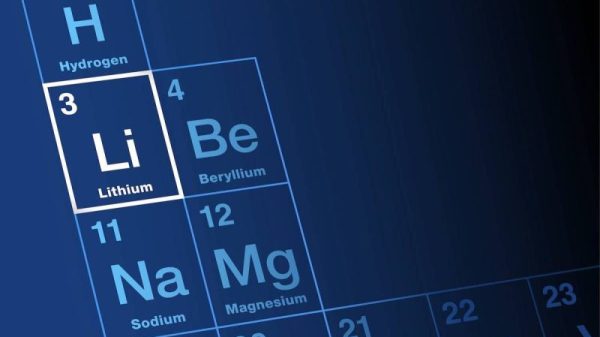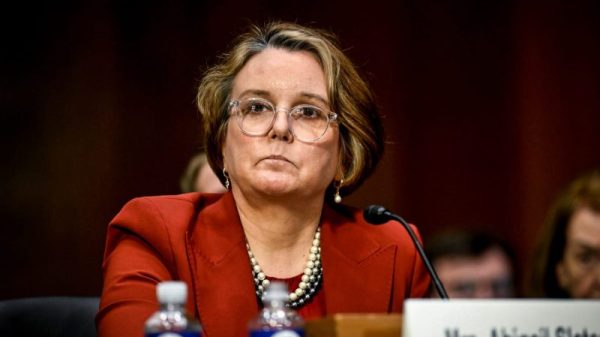DES MOINES — At this time in 2020, Democrats held three of Iowa’s four congressional seats. They had three statewide elected officials, and they were just kicking off the Democratic presidential nominating process.
Four years later, Iowa Democrats have no representatives in Congress, only one statewide elected official — the state auditor — and their prized spot at the head of the nominating calendar has been ripped away from them.
Beyond that, they have seen former president Donald Trump twice carry the state by comfortable margins after a pair of victories in 2008 and 2012 by Barack Obama.
“It has been painful for Democrats in Iowa,” said Scott Brennan, a former chair of the state party.
As Iowa Republicans prepare to begin their party’s presidential nominating process with Monday’s caucuses, many Democrats concede that their party has hit rock bottom. The state, once a presidential battleground, has joined Ohio, also a longtime swing state, in moving to the right. Few expect the Democrats to be competitive in the presidential race in November.
Out of power and the spotlight, Democratic Party leaders are trying to chart their path forward and while they acknowledge they are in the doldrums, they say there are signs for optimism, among them narrow losses in some races in 2022 and the hard-right turn of the state’s Republican Party.
“The races that we’ve lost have all been very narrow — 1 percent, 1½ percent. We lost a congressional race by six votes,” former senator Tom Harkin (D-Iowa) said. “So it’s not that we’ve overwhelmingly lost everything.”
In 2022, former congresswoman Cindy Axne (D-Iowa) lost her seat by less than one percentage point, and the party’s nominee for attorney general and treasurer lost by 1.7 and 2.6 percentage points, respectively. In the same year, however, Gov. Kim Reynolds (R) won by more than 18 points and Sen. Chuck Grassley (R-Iowa) was reelected to an eighth term by more than 12 points. Iowa Republicans also gained supermajority control of both chambers of the state legislature.
Since then, Reynolds has signed into law a six-week abortion ban, a voucher program that allocates state funding for private schools and legislation that bans certain books in schools and prohibits teachers from discussing LGBTQ issues. Democrats see those policies as an opportunity to boost Democratic turnout and win back independent voters and moderate Republicans.
“The people of Iowa appreciate balance in the federal government and the state government,” said Rita Hart, the chair of the Iowa Democratic Party. “It is out of whack here in Iowa because Republicans have been in power for too long, and they have overreached.”
But Democrats acknowledge that alone is not enough to flip a state that has been trending Republican for years. They also need to find ways to win back voters who have left the party over the years, especially those in rural areas. In 2020, Trump won Iowa by more than eight percentage points.
“These are people whose vote is worth every bit as much as anyone else’s, and their opinion is equally impactful as anyone else’s,” said Rob Sand, the state auditor and only Democrat elected to statewide office. “And there’s so many people in the Democratic Party who have been hurt by Trump and Trump’s actions, but who want to write off the people who voted for him just because they voted for him.”
But as Democrats try to make inroads with voters who left the party, the loss of the caucuses, many fear, will impede efforts at party building. The current environment is a far cry from four years ago when Democratic presidential contenders were flipping pork chops at the Iowa State Fair, hiring organizers throughout the state to engage with voters and bolstering the state party’s coffers.
That came to a crashing end after the Iowa Democratic Party botched the caucus process, the results of which were not finalized for days. But Iowa’s place at the start of the primary process was endangered before that.
Party leaders were dismayed by the state’s lack of racial diversity, the rightward drift of its voters and the leftward drift of its Democratic caucus-goers. Critics also argued that the caucus process, which until recently required people to show up in person on a specific day and time, was undemocratic.
Biden, who finished fourth in the 2020 Democratic caucuses, was never a fan of the state’s process and oversaw an overhaul of the calendar that elevated South Carolina, whose voters resuscitated his candidacy, to first-in-the-nation status. Nor were Hillary and Bill Clinton, who were stung by her loss to Obama in the 2008 caucuses.
Tom Miller, a Democrat who served as Iowa’s attorney general for 28 years before losing in 2022, said the Democratic National Committee’s decision to strip Iowa of its caucuses signaled to many voters that the party does not care about rural voters.
“It sends that message, and it’s also bad politics,” he said. “The Democrats can’t have a real working majority for any amount of time without more votes in rural Iowa, rural America.”
Other Democrats took a more sanguine view of losing the caucuses.
“I think it was important and necessary for there to be a jolt to the system to begin the process of having to think about how we do things right,” said a Democratic former state official, speaking on the condition of anonymity to discuss a sensitive subject. “We became quite comfortable with the way things were done, and I think the Democratic Party paid a price for that.”
In several presidential battleground states, Democrats have long had a progressive infrastructure to supplement the work of the state party — one that included research and voter mobilization and the money to fund it. That’s been true in places like Wisconsin, Michigan, Minnesota and Pennsylvania but not in Iowa.
Instead, Iowa depended on its strong state party and the party-building value of the quadrennial caucuses. Those caucuses not only helped the state party, they also provided a stream of experienced organizers who moved into other states and up the ranks nationally.
But as Democrats sustained losses in state and national races, the cost of relying on a state party alone, and one that was losing ground, became obvious. As a result, elected officials, major donors and key activists have begun to build a similar infrastructure.
“Republicans quite frankly out-hustled us,” Harkin said. “They outworked us. I say that to Democrats: Republicans in Iowa care more about local government than Democrats do. They care about those local county offices. Democrats are sort of big picture: What’s happening to the nation? What’s happening to the world? You can’t forget about your own backyard. So Democrats didn’t organize at the county level, so we kept losing county offices.”
But as the Democratic Party works to rehabilitate its brand with Iowa voters, the loss of the caucuses has not helped. Joshua Gardner, who voted for Hillary Clinton in 2016 but is now supporting Trump after sitting out the last presidential election, brought up it unprompted this week.
At an event with Donald Trump Jr. last week, Gardner, 34 of Ankeny, said he turned against Biden because of covid lockdowns while also mentioning Democrats’ reshuffling of the primary calendar.
“Do you know how much money that took out of the local people from Des Moines and all the millions of dollars that Biden took out of the state of Iowa for just moving that?” he said. “I mean, Biden smacked Iowa in the face big time for a lot of money.”
Ashley Parker in Urbandale, Iowa, contributed to this report.





























